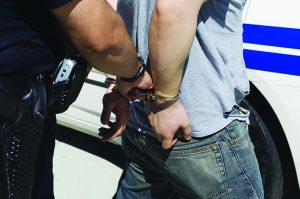by Eric Mullens
WALSENBURG — Walsenburg police spent time last week chasing leads after a rash of counterfeit bills were passed at local businesses.
Police Chief Tommie McLallen said Tim’s Kitchen, Dollar General, Walsenburg Lumber, and Carl’s Jr. all reported receiving the bogus bills. At the Dollar General an alert clerk spotted a phony $20 and $1 bill and attempted to get the person who passed the funny money to wait as they called police. “He tried hard to get the bills back, but then left the store,” McLallen said of the possible suspect. He said video surveillance at the business has led to a tentative identification of the person, but no arrests have yet been made.
In at least one other case, a possible identification has been made, but authorities believe the person who had the bill, had received it from another individual (also identified), who had paid him with it.
Examination of the bills that were collected from businesses last week show they are, for the most part, an amateur effort. One had a blue color tint to it, and others showed bad uniformity (especially in the area of the borders around the bill), rough paper, smeared ink, and either lacking the magnetic security strip or showing a fake (shadowed) strip and badly printed or missing water marks.
Another counterfeit bill was reported about two weeks ago to Sgt. Hornsby and that item was also collected into evidence. It isn’t known at this time if that and the recent counterfeit crimes are connected.
It is the individual business that takes a loss when a counterfeit note is taken over the counter. Training for cashiers in counterfeit detection is crucial if a business wants to avoid becoming a victim.
The US Secret Service offers through their website www.secretservice.gov, a simple training guide under the heading Know Your Money.
With the holiday and shopping season approaching, more and more of this kind of crime becomes common across the nation. Those who handle money, even when busy, should try to take the time to examine the currency that crosses the counter. The most often counterfeited bills include $100, $50 and $20.
If you receive what you suspect to be counterfeit currency, remember as much detail about the person who passed the bill, if possible, and notify your local law enforcement office as quickly as you can.

Breaking news: Results of Walsenburg Mayor race and recall election
Gary M. Vezzani was elected Walsenburg’s mayor in Tuesday’s special mayoral election/recall vote. Preliminary results announced Tuesday night show that both Nick Vigil in Ward



